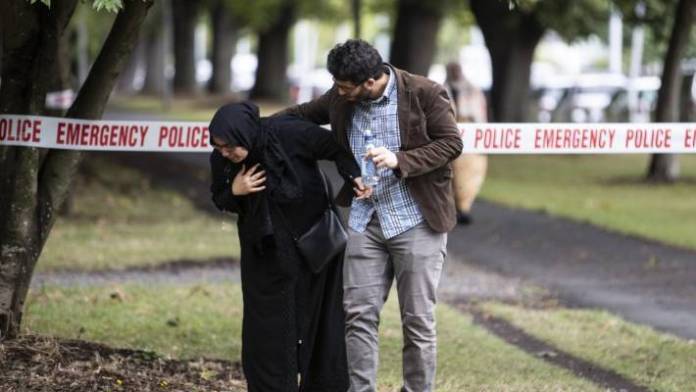Australia/Israel Review
AIR New Zealand: Wrongs on the Right
Dec 5, 2019 | Miriam Bell

Maybe it is because New Zealand is geographically isolated at the bottom of the world, making it feel separate and protected from the ills of other nations. Or perhaps it’s because the country’s reputation as a socially progressive, liberal democracy is so ingrained in the national psyche.
Yet whatever the reason, there was long a feeling here that the nasty, far-right, neo-Nazi activity and sentiments seen in other countries simply did not happen, or even exist, in New Zealand. That rather complacent majority belief was shattered by the Christchurch mosque attacks in March this year.
In reality, the ideal of New Zealand as a tolerant utopia with no evidence of white supremacism was never correct.
In the wake of the Christchurch attacks, Massey University Professor Paul Spoonley, who is an expert on far-right politics and extremism, spoke out about the fact that far-right groups are, and have long been, present in New Zealand. He said that, although they may be small and often disorganised, they are a real threat.
Likewise, intelligence and defence policy expert Paul Buchanan pointed out that Christchurch is home to an active white supremacist community.
But in the wake of the Christchurch attacks, there has been a marked increase in reports of far-right, neo-Nazi sentiment and activity. Perhaps the most notable example of this has been an apparent rise in white supremacist activity around the University of Auckland.
Back in April a group of students went public with their concerns about “a growing white supremacist movement” at the university. They reported xenophobic comments on social media and white supremacist graffiti, posters and stickers on the campus. They also said several individuals associated with far-right groups were physically threatening minority students.
Then in September another wave of posters and stickers promoting a white nationalist group hit the University. On both occasions, the situation was extensively covered in the media, gaining extra traction because many felt university Vice-Chancellor Stuart McCutcheon’s response was not as empathetic as it could have been.
The situation prompted the Holocaust Centre of NZ to urge Auckland University management to take decisive action on the matter.
The Jewish community has long been aware of and concerned about such far-right activity. But the rise in media coverage of it left me wondering what the Jewish community’s thoughts on it at the current time are.
Is there a feeling that white supremacism, and the antisemitism associated with it, has increased of late? Are far-right groups in New Zealand a serious threat to the Jewish community?
Perry Trotter of the Holocaust and Antisemitism Foundation Aotearoa New Zealand says they are concerned, but unsurprised, by recent revelations of neo-Nazism in New Zealand. Antisemitism has been present in society for centuries and has manifested across many cultures and philosophies, he says.
“What is dangerous about the present period is that even though a toxic view may be held by a minute percentage, those few individuals are able to locate and interact with one another, whether separated by suburbs or by continents. Such individuals are affirmed and emboldened, making it more likely that their views will occasionally be acted upon.”
For Zionist Federation of NZ President Rob Berg, the far-right is a problem in New Zealand, but no more so than in many other countries.
He noted that access to global networks and neo-Nazi propaganda has become far easier due to the internet. “That’s assisting in the increase in activity we are witnessing around the world. Governments and social media providers need to be working together to combat this.”
Since he has been in New Zealand, the levels of xenophobia he has observed have been both surprising and disappointing, Berg said. “In addition to the far-right antisemitism, there has been a significant increase globally, including in New Zealand, of antisemitism on the left.”
This is often the most vocal on social media and is regularly couched as anti-Zionism and hatred of Israel, he says. “The left sees antisemitism as a far-right ideology and so are unable to acknowledge that it has penetrated the far-left and ‘progressive’ thinking. Yet many of the anti-Israel comments could come straight out classic antisemitic tropes.”
So what’s the best way to approach the situation?
Trotter said that one important measure to counter antisemitism is to present its history, and the history of the Holocaust in particular, accurately and without dilution. “The trend, within education and elsewhere, to universalise the Holocaust and neglect its essential context has been counterproductive and ought to be resisted.”
And Berg points to the words of US historian Deborah Lipstadt. “In her new book, Anti-Semitism: Here and Now, she comments, that antisemites are not worth giving too much attention, but their antisemitism needs to be exposed and called out. This is the approach I take.”
Tags: Antisemitism, Far Right, New Zealand
RELATED ARTICLES

Antisemitism in Australia after the Bondi Massacre: Arsen Ostrovsky at the Sydney Institute





